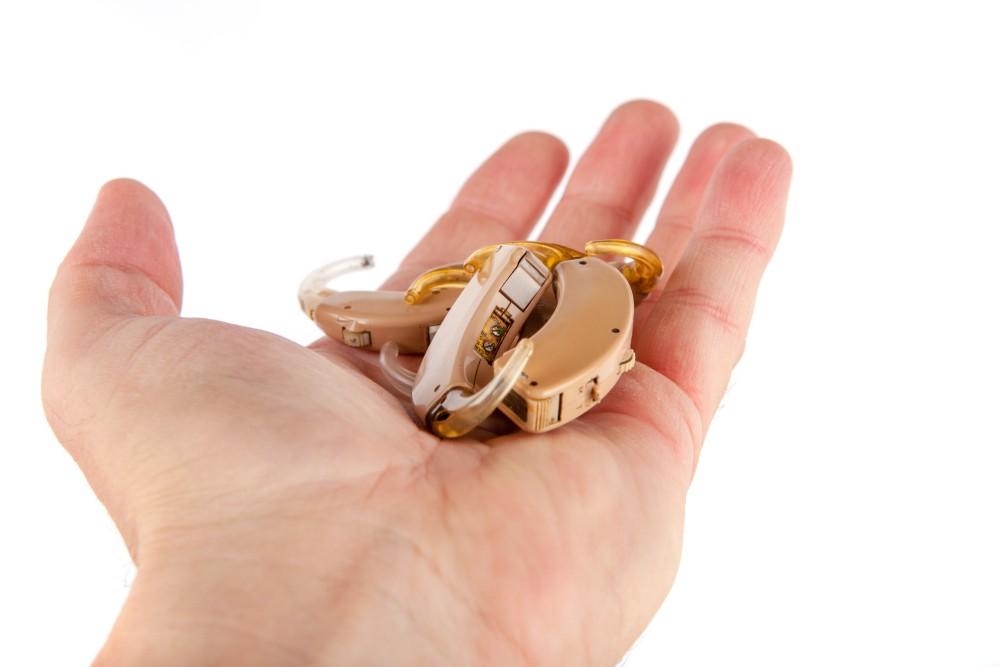How Long Do Hearing Aids Last? Your Hearing Aids Average Lifespan

With hearing aids costing a pretty penny, it’s no wonder you’d want to know how long your they last. Although averages are just averages, with these tips you can hopefully extend your hearing aids lifespan!
What’s The Average For How Long Hearing Aids Last?
Most modern high-quality hearing aids have a life expectancy on average between three to seven years. Therefore, 5 years would be a reasonable expectation.
Some factors that contribute to the lifespan include:
Materials Used to Make The Device
Although these devices are made to endure the wear and tear of most lifestyles, they are often made of plastic, metal, silicon, polymers, and other materials that are subject to some degree of structural degradation over time. Most made today have a protective coating that gives them water and dust resistance, but that doesn’t mean they are indestructible.
How Frequently The Device is Being Cleaned
You should be cleaning your hearing aids everyday!
Considering that these devices go where you go all the time, grime and dirt can build-up very quickly. Although some hearing aids come with professional cleaning check-ups, once or twice a year sessions are not enough to keep your device in top shape.
If you’re curious as to just how to properly clean them, check out our article how to clean your hearing aids properly!
Where The Device is Being Worn or Stored

Consider your lifestyle. Taking showers, blow-drying your hair, walking outside and kicking up dust or dirt…we are in damp or dusty environments more often than we might realize. Always try to be attentive to your surroundings and stay away from moisture and dust as much as possible.
As mentioned above, hearings aids are sensitive to moisture and should be stored in a cool dry place preferably with the battery door open.
The Style of The Hearing Aid
The bigger behind-the-ear (BTE) styles tend to have a longer lifespan compared to that of in-the-ear (ITE) styles. Because ITE hearing aids use smaller components and because they sit in the damp area of your inner ear canal, they are more prone to damage.
The Wearer’s Physiology
Some people have oily skin and produce a lot more earwax. These factors can impact the devices lifespan.
The Technology Inside The Device
Because the technology for hearing aids advances greatly every few years, manufacturers may stop making replacement parts for old hearing aids. If you find out your older model is no longer supported, then you may have no other option aside from replacing or upgrading your current model.
Replacement or Adjustment?

As answered above, typically hearing aids last for about five years. While audiologists recommend replacing around this time, the ideal time for a patient to consider new devices varies widely.
If your device is less than 5 years old, but you are still noticing that your hearing needs are not being met with your current hearing aids, you might be in need of an adjustment rather than a replacement.
Some more key signs that your hearing aids need adjustment can include:
- Fluctuating Volume. If you find that you can no longer adjust your hearing aids volume, you should definitely look into tuning or repairing your device.
- Whistling Sound. Some users experience continuous whistling sound while using their hearing aids. The whistling sound can be due to a number of reasons including earwax buildup, so the problem might not be caused directly by the device. Your doctor can remove any excessive earwax buildup, so be sure to call in for a consultation if you notice anything.
- Increased Hearing Loss. Hearing aids are supposed to help with your hearing loss. If you notice that your hearing is somehow getting worse, an audiologist will be able to adjust the setting on your device-specific to your current state of health. Be mindful that if the degree is too severe, you may be suggested an upgrade or a replacement.
- The Unexpected. Hearing aids, being electronic devices that mount small sensors and computers, may suddenly stop working for hardware or software reasons. Don’t panic though! This does not mean you need to purchase a new device or pair; tuning the hearing aid or even simply replacing the battery may be enough to resolve the issue.
The number of years you’ve had your hearing aid is one of the biggest factors when considering replacing or adjust your device. Therefore, if your device is older than 5 years and you find yourself facing these problems, then you may want to mentally prepare yourself for the possibility of requiring a replacement.
With proper care, you may find yourself using your hearing aid longer than most!
The information in this guide has been written using the following reliable sources:
https://www.healthyhearing.com, https://myhearingcenters.com, https://www.hearingyourbest.com
The post How Long Do Hearing Aids Last? Your Hearing Aids Average Lifespan appeared first on Olive Union.





 Everyone has had or dealt with dry skin at some point in their lives. It can be caused by the environment, allergens, lifestyle decisions, and many other varying factors and can be quite a nuisance to deal with, even painful. Similarly, the same can be said for dry ears. Similar to how skin produces oil […]
Everyone has had or dealt with dry skin at some point in their lives. It can be caused by the environment, allergens, lifestyle decisions, and many other varying factors and can be quite a nuisance to deal with, even painful. Similarly, the same can be said for dry ears. Similar to how skin produces oil […] Web designer is a particularly accessible job for the hearing impaired as well, because most of the communication involved tends to be digital. Salary...
Web designer is a particularly accessible job for the hearing impaired as well, because most of the communication involved tends to be digital. Salary...
